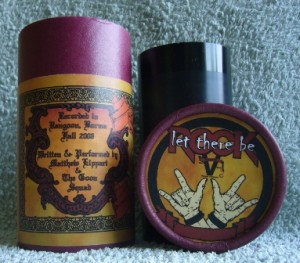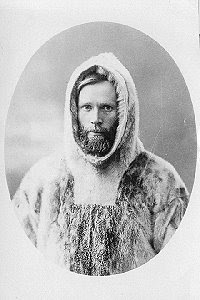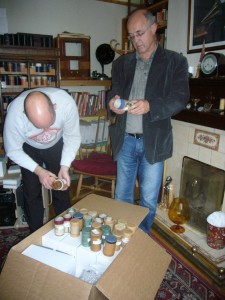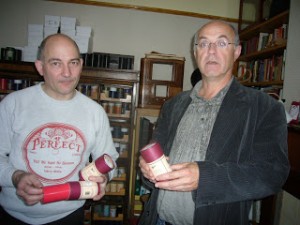We have pleasure in introducing a new 4-minute title to our Catalogue, Breakaway, by the Picadilly Players.
This is a very lively foxtrot, and includes the vocal contribution by The Rollickers. The piece cam from Movietone Follies in 1929. It was originally released as a Diamond Disc, number 52613-L.
 The song, The Title of This Song is Longer Than The Song, came off the album, Let There Be Rock (a tribute to ACDC). This album was the first death metal release to be recorded in Myanmar (Burma). Burma was, at the time, the second most oppressed country in the world, behind North Korea, and the government controlled everything, with spies to match. It took almost six months to get the music and lyrics past the censors. The recording took place in Rangoon, where an armed soldier had his gun out the entire time – made for an interesting recording environment.
The song, The Title of This Song is Longer Than The Song, came off the album, Let There Be Rock (a tribute to ACDC). This album was the first death metal release to be recorded in Myanmar (Burma). Burma was, at the time, the second most oppressed country in the world, behind North Korea, and the government controlled everything, with spies to match. It took almost six months to get the music and lyrics past the censors. The recording took place in Rangoon, where an armed soldier had his gun out the entire time – made for an interesting recording environment. Only 50 copies of that initial release were made, and over the past year I thought it would be nice to find a way to do justice to the bizarre origin of the record. When I heard that cylinders were still being made, it seemed like a perfect fit – what better way to celebrate the release of the first death metal album in Myanmar’s history than with another first? The first (as far as I have been able to determine, anyway) death metal song released as a cylindrical phonograph – that makes it doubly obscure.
Only 50 copies of that initial release were made, and over the past year I thought it would be nice to find a way to do justice to the bizarre origin of the record. When I heard that cylinders were still being made, it seemed like a perfect fit – what better way to celebrate the release of the first death metal album in Myanmar’s history than with another first? The first (as far as I have been able to determine, anyway) death metal song released as a cylindrical phonograph – that makes it doubly obscure. ‘Christian Leden is considered a pioneer in the use of the phonograph for collecting music, and he is also the first to record film from the northern Arctic region. In addition to music he collected objects typical of Greenland’s culture, and also took photographs.’
‘Christian Leden is considered a pioneer in the use of the phonograph for collecting music, and he is also the first to record film from the northern Arctic region. In addition to music he collected objects typical of Greenland’s culture, and also took photographs.’  This has been an exciting project, as we received and carefully catalogued the moulds, amazed at the pristine condition of some and by the corrosion and rubbish on others.
This has been an exciting project, as we received and carefully catalogued the moulds, amazed at the pristine condition of some and by the corrosion and rubbish on others. This is Duncan and Lars, looking at the latest batch of cylinder moulds we had just received …
This is Duncan and Lars, looking at the latest batch of cylinder moulds we had just received …
Cart